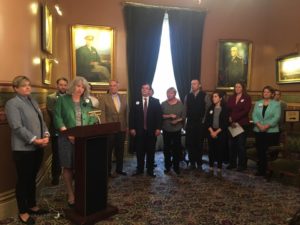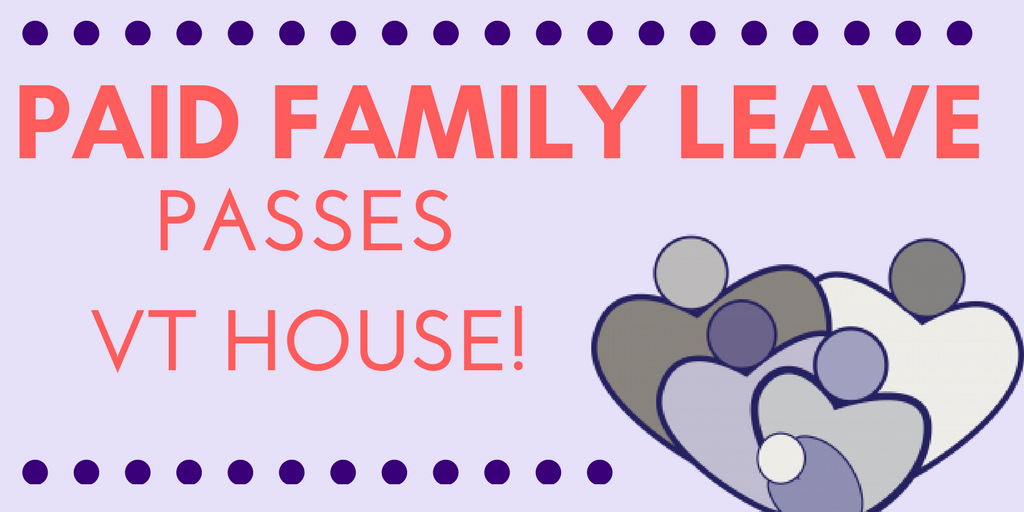The paid family leave insurance proposal, H.196, has been approved by the Vermont House!
After hours of debate, representatives acted to advance the bill to the Senate by a vote of 88-58, where it will likely be taken up next year. Despite being significantly weakened throughout the committee process, H.196 still provides an important benefit not currently available for many Vermonters by developing a state run family leave insurance program for public and private sector employees in the state.
As Rep. Thomas Stevens, D-Waterbury, explained in his introduction of the bill:
“Paid family leave is an insurance program, like unemployment insurance, that is fully funded by employees. It’s a benefit owned by the employees for the employees and is not reliant on employer contribution. It is not used by everyone who qualifies, but it provides benefits to everyone, starting from the peace of mind related to knowing that such a benefit exists if needed.”
A few representatives shared compelling personal stories about the benefit their family experienced from having paid leave, as well as those who struggled without it.
Did your Representative vote yes? Find out here.
Earlier in the day, VPIRG advocate Kati Gallagher stood with coalition partners, business owners, citizens, and legislative leaders to reinforce just how important paid family leave is for all Vermonters.

Here’s some of the highlights of the bill:
- Qualifying conditions include:
- Pregnancy, birth, adoption, foster;
- Serious illness or injury of employee’s close family member; or,
- Serious illness of the employee.
- Paid benefit duration: up to 6 weeks.
- Compensation: 80% wage replacement up to a cap of 2x the livable wage.
- Qualifying criteria: employee must have been employed for at least 12 of the previous 13 months.
- Finance mechanism: 0.141% payroll deduction (up to $150,000 in wages) paid for by the employee, with the option for employers to pay all or a portion.
- Job protection: employee’s job is protected unless-
- Employer has fewer than 10 employees;
- The position was going to be terminated prior to leave request;
- Employee would have been laid off for reasons unrelated to leave; or,
- Employee performed a unique service & hiring a permanent employee to replace the employee was necessary to prevent substantial economic injury to employer.
As the United States remains one of two countries in the world that does not guarantee paid family leave, states are increasingly stepping up to provide the benefit for their citizens: California, New Jersey, and Rhode Island have been offering paid family leave for a few years, and New York’s leave law will be implement in January 2018.

